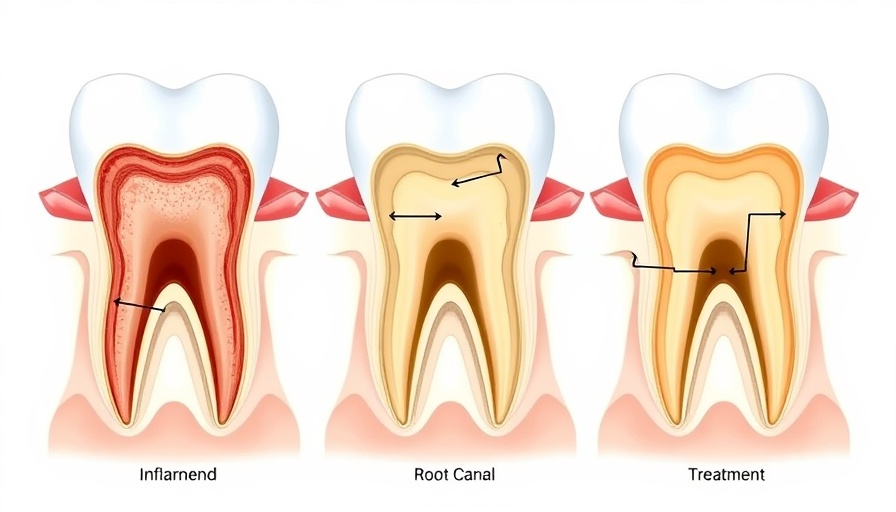
Identifying the Warning Signs of Root Canal Failure
Experiencing tooth pain after a root canal can quickly be a cause for concern. For many, the prospect of having to undergo this procedure is already daunting, primarily due to the anxiety related to pain and discomfort. However, recognizing the symptoms of a failed root canal can empower patients to seek timely intervention and potentially safeguard their oral health.
Common Symptoms of Root Canal Treatment Failure
After undergoing a root canal, patients expect healing and relief from pain related to tooth decay. However, specific symptoms may indicate that the procedure has not been wholly successful. Common warning signs include:
- Tenderness or Persistent Pain: Your tooth should feel normal post-recovery. If tenderness or pain returns when applying pressure—which might signal inflammation in surrounding tissues—it's time to consult a professional. Pain can originate from an infection that leads to pus buildup.
- Swelling: Post-treatment swelling around the tooth is a red flag. This tenderness often arises from infections that, if not rapidly addressed, can worsen and become serious. Notably, these infections can result in abscesses that may even drain pus, a primary indicator of re-infection.
- Pus or Discharge: If you notice any drainage or abnormal discharges around the treated tooth, it must be evaluated immediately. This symptom, which can lead to bad breath, signifies a need for urgent dental intervention.
- Gum Issues: Healthy gums are firm and pale pink. If they appear red, swollen, or bleed when brushing, deeper issues might exist. This is particularly concerning after experiencing treatment related to a root canal.
Understanding the Causes Of Root Canal Failure
A root canal may fail for several reasons. One potential cause is inadequate cleaning of the canal, which allows bacteria to survive. Moreover, complex root structures can hinder proper cleaning. In some rare cases, a new infection can develop from bacteria reinfection following the treatment. Understanding these causes can help patients discuss remediation options with their dentists.
What to Do If You Suspect Root Canal Failure?
If you experience any of the mentioned symptoms after a root canal, do not hesitate to seek help. Contact a dentist near you or a root canal specialist to receive a thorough evaluation. Ensuring that the underlying issue is treated promptly is critical to avoid more significant complications and pain.
When Should You Schedule a Dental Appointment?
Proactive dental care remains fundamental to ensuring your oral health. If you notice any symptoms indicating a failed root canal or issues related to dental work—such as bad breath or swelling—schedule a dental appointment as soon as possible. Many practitioners now offer easy online appointment scheduling, providing a straightforward approach to maintaining your dental health.
The Importance of Regular Dental Consultations
Regular checkups play a pivotal role in preventing potential complications post-root canal. Dental professionals, including pediatric dentists and cosmetic dentists, can monitor the treated area effectively. Frequent evaluations can encompass dental cleaning and the assessment of dental implants or crowns if necessary.
In conclusion, while root canals are critical in preserving your teeth, recognizing the symptoms of failure is equally vital for ensuring long-term health. Promptly addressing any warning signs can lead to more successful outcomes and greater peace of mind.
To schedule a dental appointment online or learn more about options available like dental implants, teeth whitening, and family dentistry, reach out to your local dental clinic today!
 Add Row
Add Row  Add
Add 




 Add Row
Add Row  Add
Add 

Write A Comment